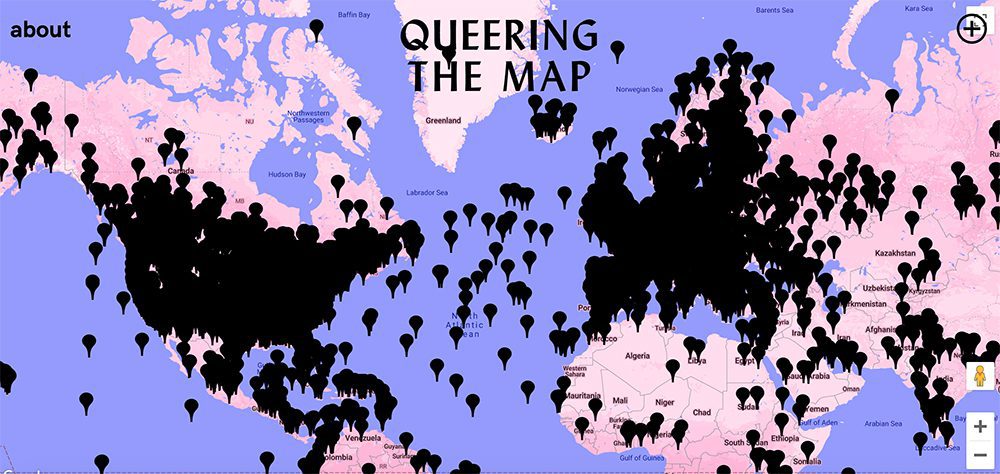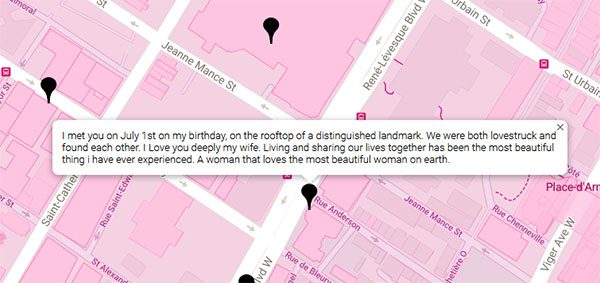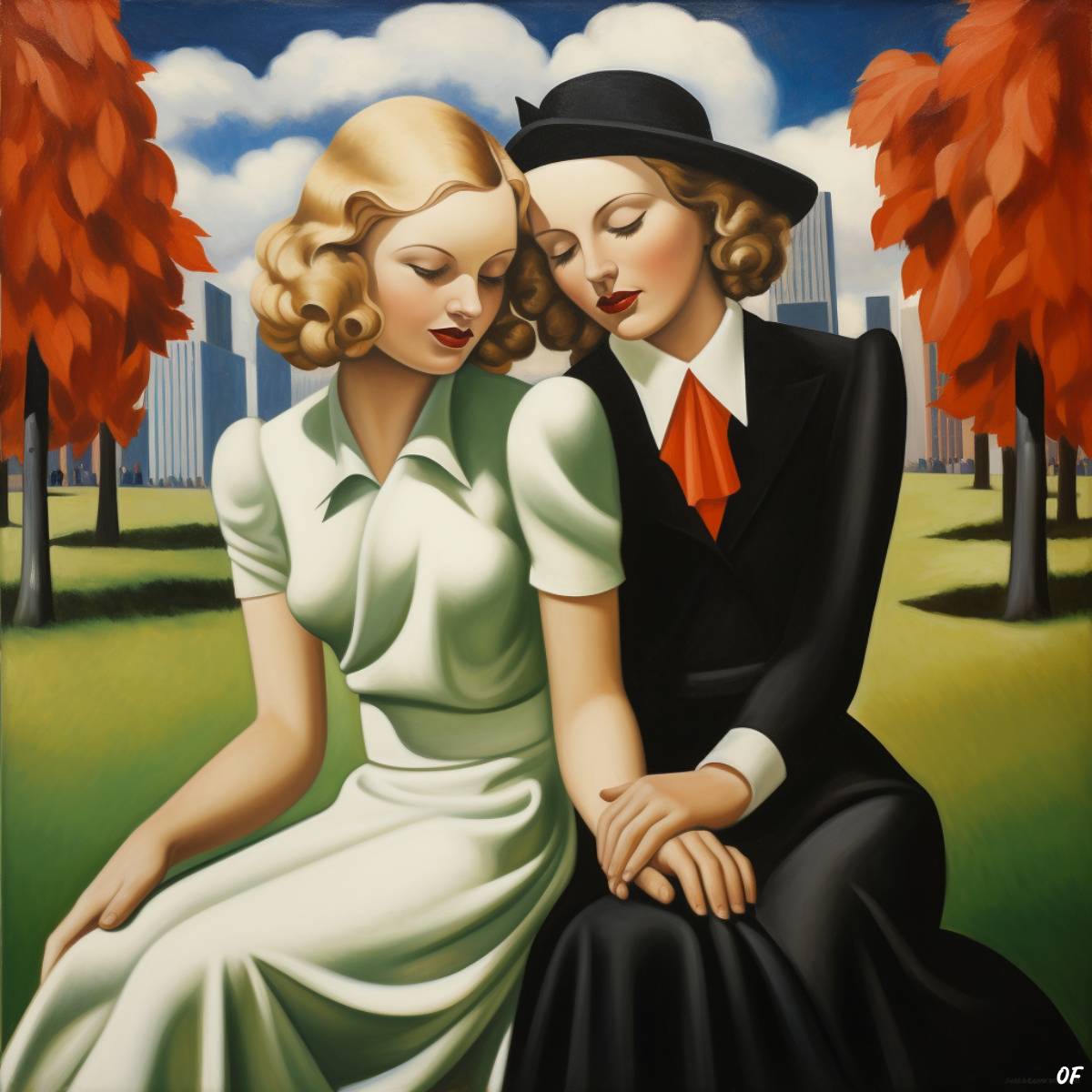Everyone has spaces and places that signify important and life-changing events for them, regardless of who they are. For many, these spaces are where they defined who they became and acceptance from the people around them. For many in the queer community, this reality is particularly true—and one project, Queering the Map, aims to document these experiences.

Queering the Map is a website and community space created by Lucas LaRochelle. It consists of a world map taken from Google Maps. Rather than a green or grey background, the buildings are shown in pink. The street names can be seen, but shops and specific buildings have been removed. Instead, the labels are all additions by the website’s queer community.
Users can add a location represented by a black pin, writing a small note about why the space is significant. They can remain anonymous, allowing people who live in homophobic communities to be safely involved. When other users hover over these pins, they can see these notes.
LaRochelle enforces no rules on their project, although they do monitor all posts and remove anything offensive or aggressive towards other users. The project is defined as a safe space for anyone to post without fear of judgment or ridicule. According to the website, LaRochelle defines the project’s intent to “collectively document the spaces that hold queer memory.”

The project began in early 2017 as a class project while LaRochelle studied at Concordia University in Montreal, Canada. By May, the website had gone live, although it remained quite a small project until the following year. In February 2018, Frankie Teardrop, a Montreal-based DJ, shared the website on his Facebook page. This gave the project the publicity it needed, with the number of pins jumping from 600 to 6,500 in a span of three days.
Due to the nature of the website, it has been the target of bigotry and attacks. In February 2018, the website was subject to a cyberattack that placed pins containing pro-Trump messages. LaRochelle was forced to temporarily take his project offline. A number of the site’s users offered to improve the website’s security, and it was relaunched in April 2018.
As LaRochelle says in a message on their website: “As queer life becomes increasingly less centered around specific neighborhoods and buildings within them, notions of ‘queer spaces’ become more abstract and less tied to concrete geographical locations.” The website allows people to give places significance and permanence, even as the physicality of these places changes.
As the project continues to grow and expand, the number of pins and locations increases daily. The project has now become a community in itself, a space for members of the queer community to celebrate and share their experiences.


